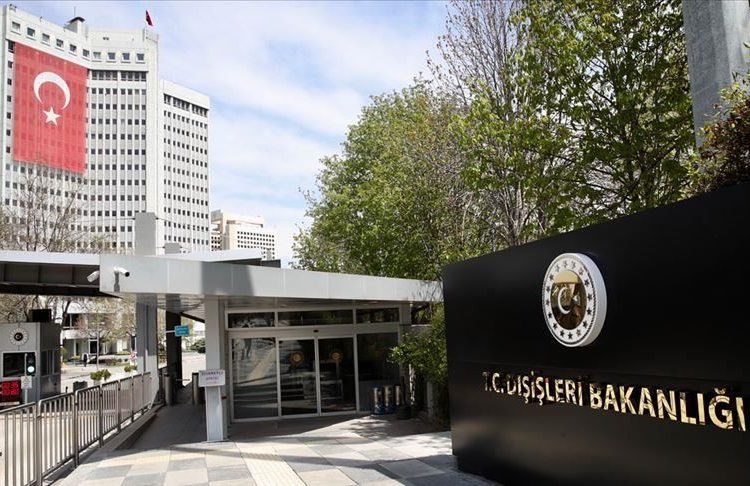Nordic Monitor
An interview given by Turkish Ambassador to Uganda Kerem Alp to the state-run Anadolu news agency confirms how Turkish diplomats collect information on the business activities of critics of President Recep Tayyip Erdoğan living abroad and profile their companies as if they were part of a terrorist organization.
In his March 2, 2020 interview, Ambassador Alp stressed that “the Turkish Embassy is collaborating with Ugandan security officials in monitoring businesses run by FETO members.” Alp admitted that the embassy in Kampala was working with those officials to collect information about companies registered in Uganda and their owners.
Alp also revealed that the embassy is gathering information on medical staff, educators and humanitarian volunteers who are working for Ugandan institutions. “There were some FETO followers who had sought to hide in Uganda and were working in schools or hospitals. … They have been disguising themselves as humanitarian workers,” he told the news agency.
FETO is a derogatory term coined by the Turkish government to refer to the faith-based Gülen movement, a civic group that has been active in education, interfaith and intercultural dialogue and charity work in many countries. The movement is led by US-based Turkish Muslim scholar Fethullah Gülen, a vocal critic of Erdoğan on corruption and the Turkish government’s aiding and abetting of armed jihadist groups in Syria and other countries.
Ambassador Alp’s interview came just two weeks after remarks made by Turkish Foreign Minister Mevlüt Çavuşoğlu confirming clandestine spying operations by Turkish diplomats on foreign soil. Çavuşoğlu said Turkish diplomats assigned to embassies and consulates have officially been instructed by the government to conduct such activities abroad.
“If you look at the definition of a diplomat, it is clear. … Intelligence gathering is the duty of diplomats,” Çavuşoğlu told Turkish journalists on February 16, 2020 following the Munich Security Conference, adding, “Intelligence gathering and information collection are a fact.”

Ambassador Alp shared the link to his interview on the embassy’s official Twitter account.
Nordic Monitor previously reported on official correspondence from the Turkish Foreign Ministry that revealed how Turkish embassies and consulates have become tools of spying in the hands of Turkey’s Islamist rulers. The correspondence included two CDs, the first of which contained information about the leading critics of the Erdoğan regime, while the second CD involved details of the structure of the Gülen movement in each country and a full list of people believed to be affiliated with the movement.
According to judicial documents released by the Ankara 4th High Criminal Court on January 16, 2019, the foreign ministry had compiled a long list of foreign entities that were owned and/or operated by people who are seen as close to the movement in 92 countries in the Americas, Europe, Asia and Oceania.
Those lists created by Turkish embassies triggered numerous criminal prosecutions on charges of terrorism. In Turkey, over half a million people affiliated with the Gülen movement have been put in detention facilities in the last two-and-a-half years alone on similar charges. In some cases, host country organizations that were duly authorized and licensed under local law were also described as terrorist entities by Turkish diplomatic missions in clear contradiction with the perspective of local authorities.

Turkish President Recep Tayyip Erdoğan met with Ugandan President Yoweri Kaguta Museveni in Kampala on June 1, 2016.
In his interview Ambassador Alp explained the embassy’s strategy aimed at taking over the management of Ugandan schools and hospitals affiliated with the Gülen movement. He said the Turkish Embassy was still in “discussions with Ugandan authorities” on assuming control of these institutions.
President Erdoğan paid an official visit to Kampala on June 1, 2016 and asked for assistance from Ugandan President Yoweri Museveni to close down the aforementioned schools. Since then, Turkish authorities have reiterated their requests, but Ugandan authorities have rejected them all.
The Erdoğan government has been trying to pressure foreign governments to hand over schools affiliated with Gülen to the Maarif Foundation, a Turkish government-run entity that is administered by radical Islamist figures close to the government. Gülen previously said he had rejected Erdoğan’s demand to tap schools operated by businesspeople aligned with his movement for use in promoting the Turkish president’s political goals, which prompted the Turkish government to establish Maarif in order to compete with and take over those schools.












